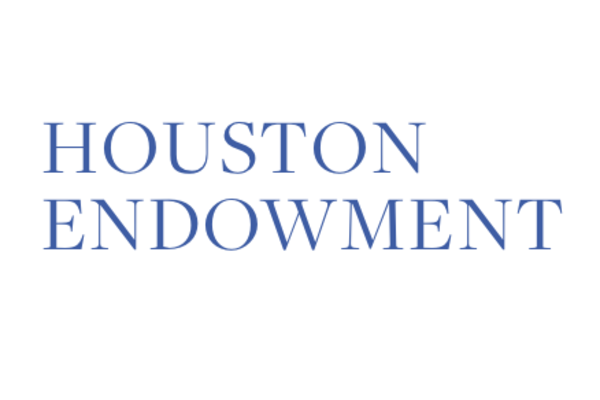1. Houston is in motion, but outside ideas about Texas are often stuck.
Organizers and local (and a few active national) funders relayed just how much of a one-dimensional picture of Texas, and Houston, exists in some outside funders’ imaginations: simply put, the city and state are simplified as a red state haven for oil, gas, big corporations and trucks too big to change. This, of course, erases long histories of Indigenous cultural connection, Black self-determination, populist activism, cross-border organizing and more. It also misses how much of Texas’ present and future story is being fought for right now. As one funder shared, “I think our experience over the last few years — if you look closely enough, and if you're on the ground, the way that we are — is that Texas is changing and [funders can be] part of changing Texas.”
The punchline for funders is simple: “We need people to think of Texas, as in motion and movement” — and real resources can be the engine of advancing even more powerful change with big impact.
Co-conspire with NFG

NFG organizes philanthropy so that Black, Indigenous, and people of color communities and low-income communities thrive. We offer funders a political home: a place to connect, strategize, and take action.
2. People power is the real return on investment.
Investing in a changing Houston means recognizing what has led to transformative change — a deepening culture of organizing across civic and economic areas and interdependence. Part of it is due to how much organizing happened without foundations or with funding that was not campaign-specific.
The disaster response in Harvey propelled organizing because many groups did what they could often without having to comply to pre-set deliverables; they advanced, experimented, and struggled, while many non-local funders stood on the sidelines or were willing to put aside the usual. And the result has outlasted any policy on the 100 year flood zone: it is a deep base of low-income, BIPOC community networked to speak up and to support each other, and a concerted and shared set of targets in construction and housing. The same has occurred in very grassroots efforts like the HCEDD fight against Rice. All of these required intensive relational work, where not all the answers existed and where foundations were either absent or willing to support through unrestricted grants. Yet these grassroots, hard-fought, under-funded efforts have led to sustained mobilizations for change. Imagine how much more an impact if real, deep resources are put forward.
This kind of deep, long-term effort isn’t always “hot” to funders — nor is work with no guarantees. One organizer shared, foundations are always pushing them for what is “new, exciting, always ‘moving the needle’… We pretend we're doing new stuff all the time, but we're actually we do the same thing all the time because it’s what works.” Organizations need space and time “to screw up, to make changes, to build and start again,” another leader explained. The real return on investment is not discrete policy but what has already started to sprout, but needs much more funding to fully bloom: an active “ecosystem of movement building” shaped by a growing “culture of organizing” that represents sustained, vibrant community power.
3. Build up movements before you stand up tables.
While Texas may have strategic national value, funding can happen without building more state tables from the top-down. What is critical about Houston in Action, HOME Coalition, HCECDD, Build Houston Better, and others is that these were not spaces funders created and forced organizers to find a place in; they came out of local grassroots response and a desire to build scale and shared capacity through aligned goals, and increasingly, deeply-shared values. National funders can help re-direct the impulse of national think tanks and electoral forces to generate endless civic engagement tables, and instead re-route funds to existing, growing local and regional movement coalitions and shared infrastructure.

4. Recognize the links among civic and economic power-building — and coordinate funding across these areas.
Houston’s struggles in the construction sector, county government fights, and rebuilding all involved interlinked mobilizations across civic/electoral groups and labor/worker organizations. Texas organizers’ do not show a clear demarcation, and their ability to make change requires work across these lines — as the post-Harvey build back better movement exemplified. School construction campaigns, too, required action pressuring county government, school boards, worker-parents and more. Texas is a key opportunity to model cross-cutting funding that understands labor’s essential role supporting civic power, and that a more transformational vision for labor’s electoral funding can impact national power from the ground up. This requires recognizing national labor as a funder and offering progressive local labor a seat at the table, and from labor, moving forward with transformational, movement-rooted approaches to electoral endorsements and support.
Towards building this shared infrastructure, several interviewees mentioned key capacities that Houston organizations need support shoring up across civic and labor. These include centralized research institutions, particularly given the need for in-depth sectoral research to drive worker organizing and support policy development. Given the complex politics of development and opacity of industries like oil and gas, stronger research institutions can be vital to coalitional infrastructures. (Research partners from the Rice Sankofa Institute have been vital in HCECDD’s Rice development campaign, as has the research Workers Defense has done on construction.) Political and leadership development training is also another area where many organizers would like to see future growth and can grow as civic and workplace leaders. Many coalitional groups like Houston in Action are stepping in to provide such services, and the TGCALF is looking to build leadership development to train union members to run for office and obtain positions on boards and commission elections.
5. Innovations in organizing in Houston require innovations in funding.
Innovative organizing that meets the particular needs and circumstances in Houston requires innovative funding to match. Coalitions of organizations in Texas are a key way to regrant, especially for smaller groups with less resources, or that might not have 501c3 status. Support to coalitions who have specific, equitable practice to regrant to individual organizations, such as Houston in Action and HOME Coalition, is an important tactic. It’s also key to include labor unions. This was key to Build Houston Better, where Robert Wood Johnson Foundation and LIFT Fund support for collaboration was distributed to smaller worker community groups via labor. At the same time, funders should not ignore individual groups and give groups the autonomy to do work on or outside of coalitions, or outside of tables.
Similarly, funder coalitions and collaborations are also key, such as pooled funds. This can be a strategic way to invite bigger players to the conversation. True transformation is not transactional, and funders should be wary of operational practices that perpetuate transactional practices, such as funding one campaign for the short term, cumbersome data requirements, or decision-making based on electoral data alone.
6. Help funder peers move from fear to trust.
Local and national foundations each have their own peers they can move to action - and fear and hesitation is a major roadblock to investment in Texas. This can be fear locally of facing political targeting, or hesitation or confusion nationally as to where to begin. Funders in Texas have been particularly active in recognizing they cannot just move their boards; if movements are to win funders should look to organize beyond their institution to bring other local and national foundations along.
Those interested in investing in Houston should look to organizing together to move these kinds of multi-faceted strategies, helping break through hesitation by bridging peers with local movements and pushing their peers to match investment. This may include pooled funds – sorely lacking in Houston – but also means leading the way for peers to use general operating, seed, community grantmaking boards, minimized reporting, and other mechanisms rooted in trust-based philanthropy. These kind of collaborations can also become an opportunity to stand up together politically and for equity in conversations with local and county government, and wielding their institutional power.
7. No election, no organization, no community is too small; no dream for change is too big in Houston or Texas.
While the national interests in Texas often start at the top with federal senatorial and presidential elections, the reality is that the ways the state turned red has much to do with a concerted, decades-long strategy that saw no election or administrative position as too small. When it comes to Houston, many funders find themselves overwhelmed by Houston’s vast size. So the answer is simple: start small, and start with organizing because it’s the key to change. Houston is witnessing an upswing in grassroots groups, and it’s seeing patient local organizing pay off in county, school board, and other positions. The starting point to supporting local and regional movements is the same place organizers begin their work: reach out and build relationships. Build relationships with organizations and be open to new connections; ask local organizers to connect you to their peers.
If Houston has moved very far with minimal money, including taking on some of the most disastrous climate crises and most deadly industries in the US, and seeing change, imagine what real, sustained and dramatically increased funding can bring.
“It’s incredible what has been built with the state literally trying to kill us and when we haven’t had resources. Our survival and existence is amazing.” Foundations have the power to help organizations move out of survival mode– and the responsibility, as beneficiaries of the same settler and enslavement systems that created Houston. Organizations need time, space, and resources to dream, experiment, and maybe even fail and try continuing to do things differently and in ways that respond to local conditions. Leaning into philanthropic shifts can support these practices. So can learning, partnering, and trusting a growing, interconnected Houston economic and civic movement landscape that, given the chance, will make a real Texas miracle a lasting reality.

Funders we’ve partnered with

Communities Foundation of Texas
View website
Episcopal Health Foundation
View website
Houston Endowment
View website
Texas Women’s Foundations
View website

The Rockefeller Foundation
View website
The Simmons Foundation
View website

